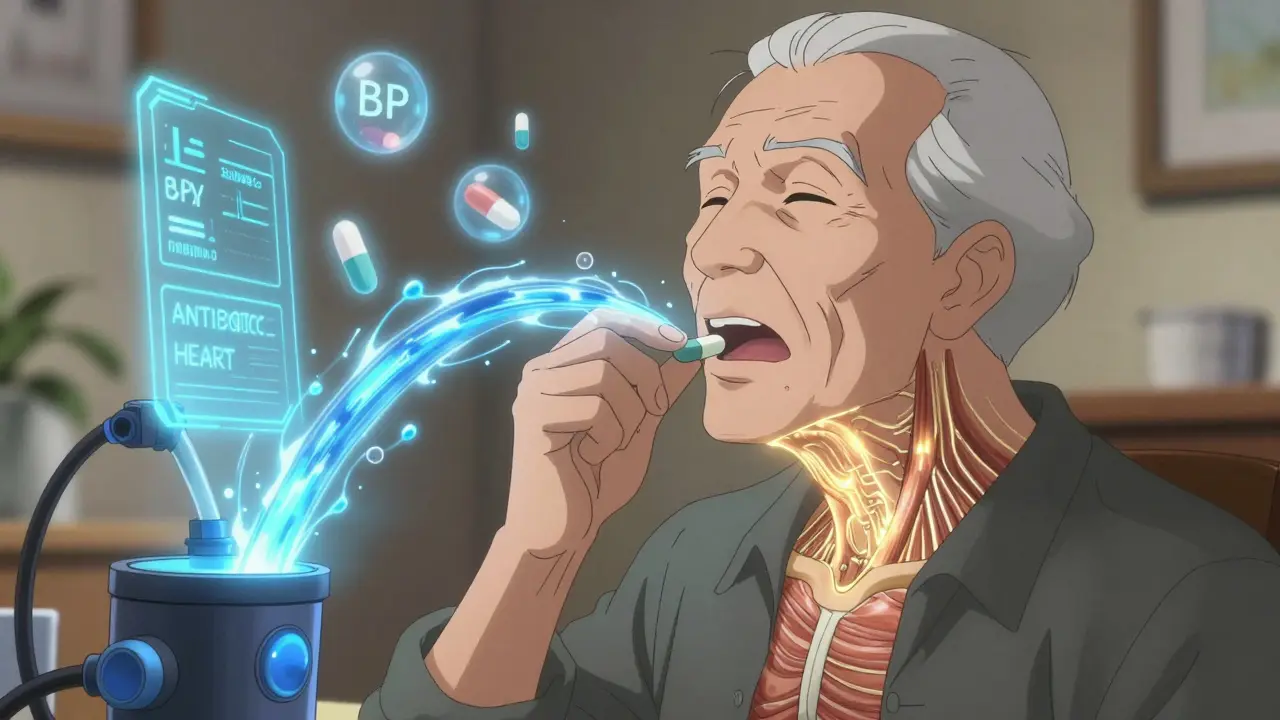Dysphagia: Understanding Swallowing Difficulties
When dealing with Dysphagia, a condition that makes swallowing hard or painful. Also known as swallowing disorder, it can show up in anyone from a newborn to an older adult, and it often signals a deeper health issue.
One of the most common culprits is Esophageal Stricture, a narrowing of the tube that carries food to the stomach. The stricture reduces the passage size, so even soft foods can feel stuck. Doctors usually spot it with an endoscopy, then treat it with dilation or medication. Knowing that a stricture can cause dysphagia helps you ask the right questions during a check‑up.
Another frequent trigger is GERD, where stomach acid constantly backs up into the esophagus. The acid irritates the lining, leading to inflammation and sometimes scar tissue that narrows the passage. Lifestyle changes—like avoiding late meals and raising the head of the bed—often ease both GERD and the swallowing trouble it creates.
Neurological events such as Stroke can also impair the coordination needed for a safe swallow. After a stroke, the brain’s control over throat muscles may weaken, causing food to linger and raise the risk of aspiration. Rehabilitation therapists teach specific exercises to rebuild strength and timing, turning a dangerous situation into a manageable one.
Medications aren’t always harmless either. Certain drugs, especially some anticholinergics and muscle relaxants, can dry the mouth or relax the upper esophageal sphincter. This “medication‑induced dysphagia” often improves when the prescribing doctor adjusts the dose or switches to a different drug. Always flag new swallowing problems to your pharmacist or doctor.
What to Expect When You Search This Tag
Below you’ll find articles that dive into each of these topics and more. From diet tweaks that ease a narrowed esophagus to breathing techniques that help stroke survivors swallow safely, the posts cover practical steps you can try right away. You’ll also see how food allergies can aggravate gut inflammation, why certain supplements might support muscle tone in the throat, and what diagnostic tools doctors rely on.
Whether you’re a patient, a caregiver, or just curious about why food sometimes feels like it’s stuck, the collection gives you clear, hands‑on information. Keep reading to discover real‑world tips, symptom checklists, and treatment options that match the specific cause of your dysphagia.





